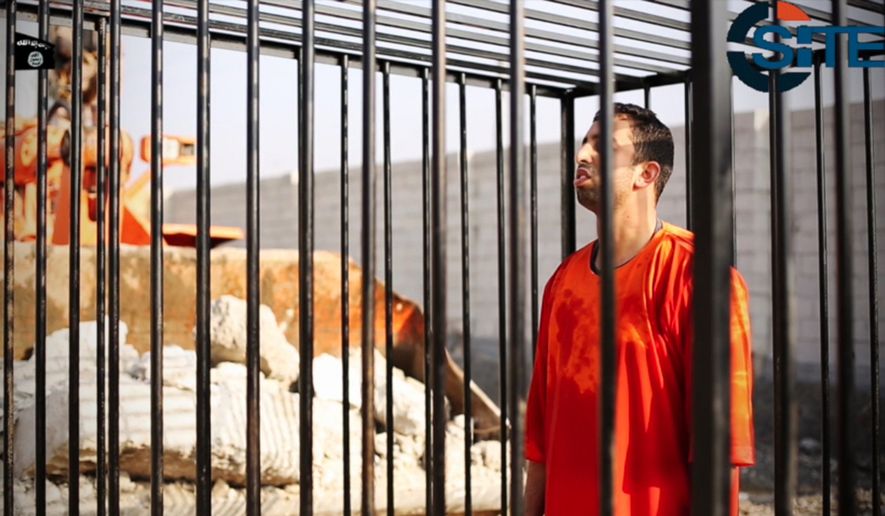The Islamic State is signaling that its execution by fire of a captured Jordanian pilot will not be its last immolation.
After the caged Lt. Muath al-Kaseasbeh was set on fire, the Islamic State’s “Fatwa and Research Authority” issued a directive that said such burnings are “completely permissible” under Muslim law, reports the Middle East Media Research Institute (MEMRI).
The Islamic State, also known as ISIL and ISIL, posted the order, or fatwa, on Tuesday on Twitter account @Raqqa_SI.––the same day it released a video of the barbarism.
ISIL considers the Syrian town of Raqqa as its headquarters for overseeing its conquests in eastern Syria, as well as northern and western Iraq.
Here are the fatwa’s translated excerpts, according to MEMRI. ISIL deemed Al-Kaseasbeh a non-Muslim or apostate. There are references to Islamic scholars and to the prophet Mohammed.
“Q: What is the ruling on burning an infidel with fire until he dies?”
“A: The Hanafi and Shafi’i schools [of Islam] hold that burning is completely permissible. They interpreted the saying of the Prophet that ’Only Allah shall torture with fire’ as [a call for] humility. [The scholar] Al-Muhallab said: ’This ban is not [an actual] prohibition, but rather a means for [advocating] humility.’
“[Shafi’i scholar] Ibn Hajar, may Allah have mercy on him, said: ’[This saying] indicates that it is permissible to burn, as the Companions did. The Prophet blinded two men from ’Arina [whom he judged to be apostates and criminals] with a branding iron. Khalid bin Al-Walid, [one of the Prophet’s Companions], also burned apostates with fire.’
“Some scholars hold that burning with fire is essentially prohibited, but is permissible while acting in retribution, as the Prophet did with the two men of ’Arina. He blinded them with an iron as an act of retribution, as is mentioned in authentic [hadith]. And this is the most prominent among the proofs.”
Jordan’s King Abdullah has vowed to launch war on ISIL. Earlier Thursday, 20 Jordanian F-16s carried out strikes on targets around Raqqa.
“The blood of martyr Muath al-Kaseasbeh will not be in vain and the response of Jordan and its army after what happened to our dear son will be severe,” King Abdullah said on Wednesday.
• Rowan Scarborough can be reached at rscarborough@washingtontimes.com.




Please read our comment policy before commenting.